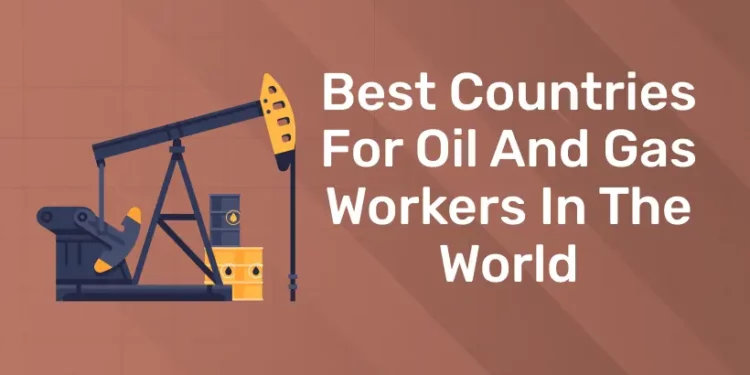A number of criteria, such as employment prospects, pay, working conditions, safety regulations, and standard of living, are taken into consideration while ranking the best countries for oil and gas employees. In this article we are providing the best countries for oil and gas workers and have historically played an important role in the sector.
Best Countries For Oil And Gas Workers In The World
Dubai, (United Arab Emirates)
Dubai, despite having significant oil and gas reserves, has been an offshore oil producer since the discovery of the Fateh field in 1966. The state oil corporation, Dubai Petroleum Establishment, has also developed other offshore fields, including the Al Jalila field.
Saudi Arabia
It is one of the best countries for oil and gas workers in the world. With one of the world’s greatest oil reserves, Saudi Arabia provides job possibilities in the upstream and downstream segments of the oil and gas business.
Calgary, (Canada)
Alberta’s oil and gas sector, established in 1947, has grown alongside the city’s expansion. With 500,000 barrels of conventional crude daily and 1.5 billion barrels of reserves, Alberta’s oil sands ensure its continued global energy market role.As of 2011, the province had around 170 billion barrels of recoverable bitumen in its oil sands deposits.
Kuala Lumpur, Malaysia
All of Malaysia’s oil and gas resources are owned by Petroliam National Berhad (Petronas), the national oil and gas company with its headquarters located in Kuala Lumpur. Petronas did not, however, find Malaysia’s abundant resources. Onshore Sarawak is where Royal Dutch Shell plc found Malaysia’s first oil field in 1910. After China and India, the nation now has the third-largest oil reserves in Austral-Asia region.
Start your career in Oil and Gas field!! Join Now!
Qatar
It is one of the best countries for oil and gas workers in the world. With abundant natural gas reserves and a booming oil and gas sector, Qatar has enticing job prospects, especially in projects involving liquefied natural gas (LNG).
Denver, United States
Denver, a city with a rich history, is home to various industries including manufacturing, telecommunications, aerospace, and air transportation, and is home to major oil and gas companies due to advancements in technology. Within three basins, these resources consist of tight sands and shale. According to a research by the Institute for 21st Century Energy, the Niobrara is currently the most active of these plays.
Jakarta, Indonesia
Indonesia, the fourth most populous country with 240 million people, heavily relies on petroleum and has experienced a 50% growth in primary energy use in the last decade. Sedimentary basins in the developed west have undergone extensive exploration, with significant hydrocarbon potential in the east.
Brazil
Brazil’s oil and gas industry is dominated by major companies like Royal Dutch Shell, EBX Group, Anadarko Petroleum, and Exxon Mobil. Forbes predicts that international corporations will increase R&D investments by 25%, reaching $7 billion by 2017. This growth will provide numerous job opportunities for foreigners in Brazil.
Mumbai, India
Mumbai is the hub of India’s oil and gas sectors, with Mumbai High Field being the largest. Over 65% of domestic crude oil production comes from this sector. The country has 43.8 trillion cubic feet of natural gas reserves and 5.5 billion barrels of proved oil reserves, according to the US data.
Perth, Australia
Perth-based Large gas reserves are owned by Woodside Energy and its partners in the Browse Basin. Another business operating in the basin is Royal Dutch Shell plc, which is building the Prelude project there. Prelude is a floating LNG facility for Shell’s gas fields in Western Australia, alongside other large-scale projects like Chevron-Wheatstone, Browse, and Chevron gas projects, aiming to develop 35.3 trillion cubic feet of natural gas.
Cairo, Egypt
Egypt is an important non-OPEC member and the continent’s second-largest producer of both oil and natural gas. According to the U.S. Energy Information Administration (EIA), Egypt has around 4.4 billion barrels of proven oil reserves and nearly 77 trillion cubic feet of proven natural gas reserves as of January 2012, with its first oil well, Gamasah, going back to the early 1900s.
Get Certified! Get Confident! Join our Oil and Gas Course!
It is important to conduct thorough study on the job markets, visa restrictions, cost of living, and cultural factors in these nations before evaluating any chances. Stability and employment opportunities in the oil and gas sector can also be impacted by geopolitical and market variables.









